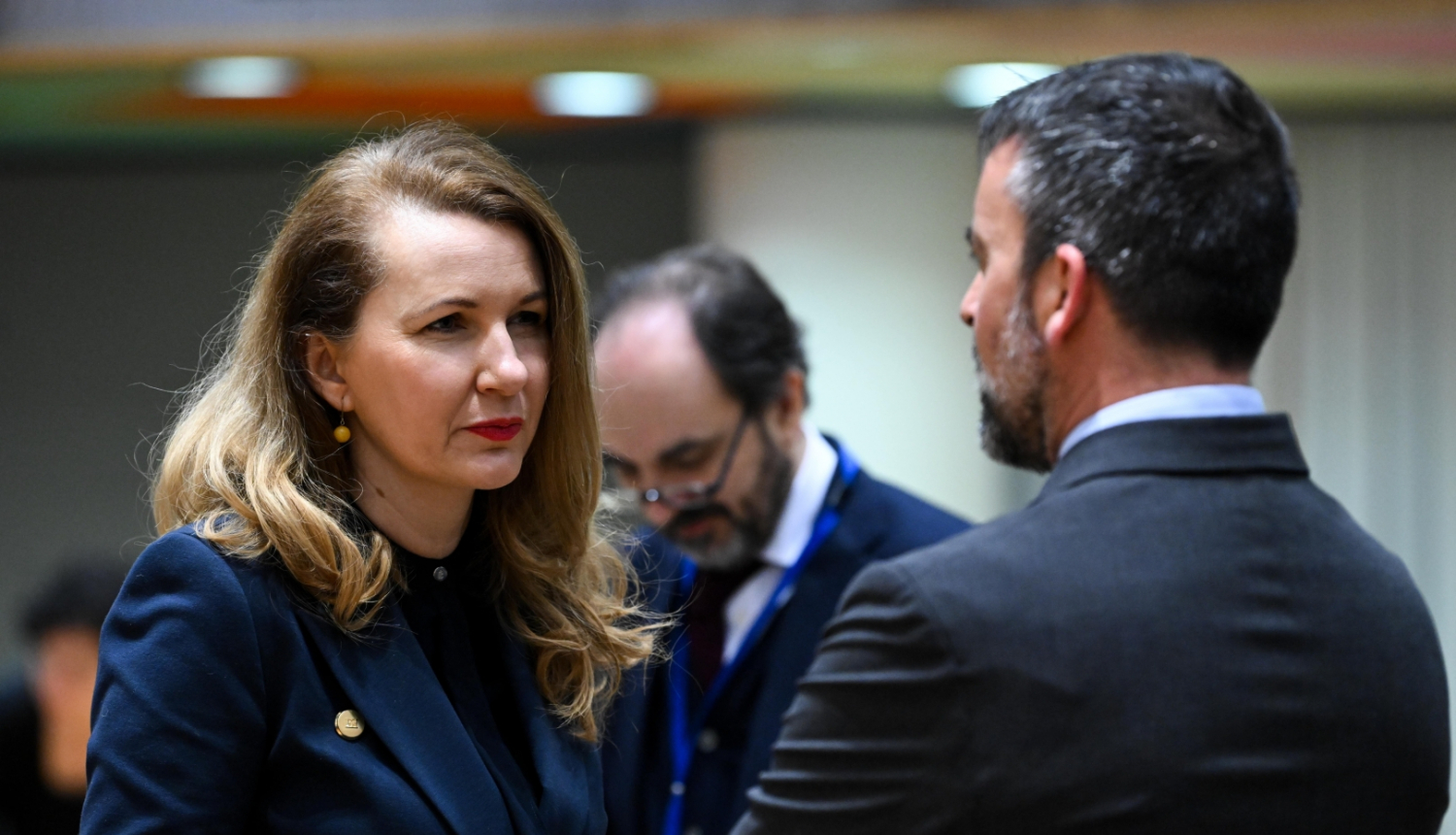On 5 March 2024, the Minister of Justice Inese Lībiņa-Egnere participated in the Justice and Home Affairs Council of the European Union (EU) in Brussels to discuss the proposal for a Directive to prevent the unauthorised entry, transit and residence of migrants in the EU. In her speech, the Minister of Justice stressed the need for a change in thinking at EU level regarding the responsibility for organising migrant smuggling, by taking stricter action against the real initiators of these crimes, including the political leadership of Belarus, which is encouraging citizens of third countries to become an instrument of hybrid war on the Belarus-Latvia border.
Minister of Justice Inese Lībiņa-Egnere pointed out that Latvia has already strengthened criminal liability for organising the illegal flow of migrants and assisting persons illegally crossing the country's borders, but smuggling of migrants should be uniformly criminalized at the EU level. The current EU framework on migrant smuggling was adopted more than 20 years ago and no longer reflects the current situation, especially at a time when countries face a hybrid threat.
Inese Lībiņa-Egnere emphasised that "Latvia is the EU's external border with Russia and Belarus. Migrant smuggling is a dangerous threat to public order in itself, but since Belarus is implementing a hybrid attack, Latvia is dealing with illegal migration every day. Together, the EU must fight with strong criminal law measures against the threat to our external border, demanding not only accountability from those who move migrants, but also from the real organisers. In the case of Latvia, responsibility may extend to the political leadership of Belarus, which is now deliberately engaging in the use of third-country irregular migrants to try to undermine our statehood."
The Justice Minister also recalled that Russia is responsible for a range of crimes directly linked to thousands of deaths, abducted children and other atrocities, which is why EU countries must continue to support Ukraine.
"We are dealing with real criminals. From the very first day of this criminal act, the Latvian people have been with Ukraine, but our help will only be sufficient if Ukraine wins," said Inese Lībiņa-Egnere.
The meeting also discussed conclusions on the application of the EU Charter of Fundamental Rights, the resilience of the judicial system against criminal organisations and the fight against drug trafficking and organised crime.



